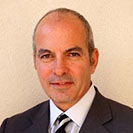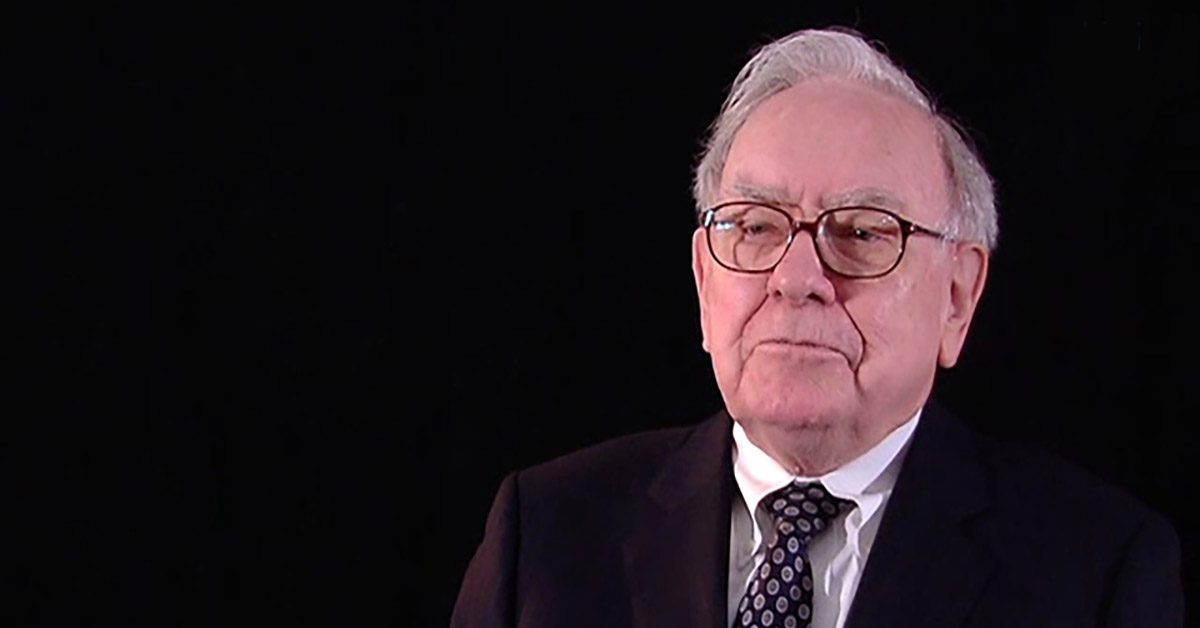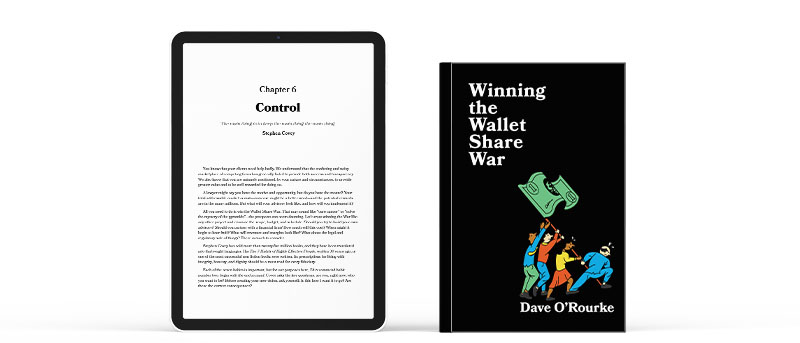Irony alert: The new recruit classes at the big broker/dealers and insurance companies have spent something close to zero minutes worrying about knowledge as a barrier. The training that they will receive will be in essentially two areas: passing the relevant exams, and learning how to sell the products their company manufactures.
It’s been said to my face, in one-on-one settings and in groups, that if I, or any of my colleagues, got higher than a 71% score (the minimum needed to pass the 3-hour Series 65), we had studied too hard, and wasted time I could have used to hone my sales skills. These new recruits are not selected for their conscientiousness, but for their willingness and ability to sell product.
Context. First, let’s just fact-check the entire idea that there’s some huge gap in knowledge between you, the CPA, and your typical financial advisor. I assert that this is a big knowledge gap, and that it favors you. You already know much more about money and risk than the overwhelming majority of financial advisors out there, not just the noobs.
The people in wealth management know very little about finance, business, or economics compared to you, and many of them know virtually nothing about accounting, which is sometimes called “the language of business.” And you’ve come by your knowledge the hard way, including passing one of the most rigorous and difficult qualifying exams in any discipline.
What’s on the CPA exam? First of all, it’s a four-part, sixteen-hour exam that must be completed within 18 months. The test verifies that the CPA has the minimum skills and knowledge required to be a CPA. It’s composed of multiple-choice, task-based simulations, and written communications tasks. I don’t have to tell you that the test is hard; it’s also known as the “Couldn’t Pass Again” test.
The AICPA recommends that test candidates spend between 300 and 400 hours studying before taking the CPA exam. Pass Perfect recommends that candidates for the Series 65 study for 55 to 60 hours.
Each state has its own requirements for becoming a licensed CPA, but all 50 require a bachelor’s degree and at least 150 credit hours of coursework. Contrast that with the requirements for obtaining a Series 65, per Investopedia: “There are no prerequisites, and candidates do not need to be sponsored by an investment firm to sit for the exam, but they need to file a Form U10 (Form U4 for brokers) and pay the $187 exam fee.”
Obtaining a license to sell life insurance and annuity products is an even lower bar. Each state has its own commissioner and licensing regulations, but to my knowledge, there are no other educational or work experience prerequisites. And, also, in my experience, the test is not terribly difficult.
There is more, of course. Continuing education for CPAs is serious business. In California, CPAs must complete 80 hours of CE every two years. Financial advisors have it much easier: an individual advisory representative has a requirement of 12 hours per year of continuing education.
The Knowledge Areas CPAs Worry Most About Are Largely Irrelevant
If you’re like the CPAs I know (my firm works with hundreds of them), what you’re actually concerned about is that you don’t know how to sell. Possibly because you’ve seen other financial professionals—not accountants—make a ton of money almost entirely due to their personality skills, you may believe that sales skills are a requirement for success. They are not. In fact, they may be a real handicap for the CPA.
Let’s do a little thought experiment. What’s more important? Learning how to sell things or learning how to buy things? If you look at the question from the point of view of the ultimate client, it’s obviously far more valuable to know how to buy. It’s a confusing and noisy world of financial products out there, and the typical American investor gets little to no training on how to manage assets or risks, let alone how to select ideal products.
If that retail investor had a serious and dedicated financial professional eschewed selling for recommending strategies that were designed to solve their client’s problems in the most economical way possible, what you’d have is a fiduciary. In my view, there is no financial professional more naturally well suited to the fiduciary role than the CPA, who is, essentially, sworn to that role by their code of ethics.
Let’s do another thought experiment, but perhaps this one is closer to a style question. When you recommend a tax efficiency strategy, do you feel you’re selling your client something? Probably you don’t; probably, what you feel you’re doing is earning your fee by applying all your knowledge and experience to help the client as best you can.
Data storytelling, transforming numbers into practical analysis, is the CPA’s art, and it’s something very few financial advisors are trained in or practice. Data storytelling is a much more effective way to engage clients and build consensus. In my view, it eliminates the need for persuasive sales techniques. Gather the data, analyze your options, and review your process, and you’ve not only gained agreement on strategy, but shown your client respect.
CPAs Already Know the Truly Important Things
Since we’re having fun with thought experiments, let’s try another one: if you really lack practical financial and economic knowledge, why is it that you are so often asked for an opinion about money matters? The answer, it seems to me, is simple: you don’t lack knowledge, and you also possess a much-needed attribute: sound judgment. Your clients know you aren’t trying to sell them something because you don’t have a hidden agenda.
This is an absolutely critical point: you don’t need to learn how to make a decision. That was drilled into you years ago. Your natural hunger for certainty is not only a tremendous advantage when seeking ideal solutions to client problems, it’s the source of your most-trusted status.
The rewards for expanding the scope of your advice to include wealth management can be hugely significant for you. It’s likely that your client spends up totwenty times as much money on other financial products and services as they do with you. And it’s also likely that they’re not getting a very good deal for all that money. No fiduciary, no sound, objective analysis, no clarity about the universe of other options, and, crucially, no transparency.
What knowledge would be useful for the CPA looking to monetize their wisdom and experience? I’d say there are three categories that would be helpful.One, you need training in the regulations that govern investment advisory and insurance. Receiving compensation for giving advice or placing insurance contracts requires appropriate licensing. As reviewed above, the examinations for these licenses should be relatively easy for you.
A second category of knowledge that would be useful is product training. There are many, many different vendors of financial products out there, operating across a variety of product types. In asset management, there are mutual funds, ETFs, and separately managed accounts. There are also many styles: value, growth, cap ranges, and geographies. Every year, hundreds of twenty-something-year-olds pass securities exams, and you can, too.
As a category, insurance is even easier than securities. There are term and whole life, and there are riders to insure against other risks and perils. And there are annuities, which really are not as complex as the industry might have you think. Thousands of people get their life and health insurance licenses every year; compared with the CPA exam, it’s a walk in the park. Insurance products compete on features and price.
The third and most subtle category of knowledge you would benefit from acquiring is becoming comfortable in the role. CPAs who are actively engaged in forward-looking tax strategizing can make this transition easily. But any CPA comes to the world of wealth management with real competitive advantages over the army of salespeople employed by the securities industry.
“Go to Market” is the Most Important Knowledge for the CPA
There are other barriers to entry for the CPA looking to do more for their clients, but knowledge is obviously important. I’d like to make another point, and it’s a vitally important one best illustrated with a folksy adage: you don’t need to know how to build a watch, you just need to know how to tell the time.
Wealth management requires a very diverse set of specialized skills: estates and trust planning, portfolio allocation and management, asset management, risk analysis and insurance, trading and portfolio supervision, and, of course, tax planning. No one person could be expected to have deep expertise in all of these.
In family offices, which are arguably the most successful and sustainable wealth management entities, multiple professionals from all these different disciplines work together to solve their client’s problems. This kind of collaboration has traditionally been very expensive, which is why the family office has been exclusively available only to the very wealthiest families.
There is a new trend in the marketplace, and it’s great news for CPAs. It’s the democratization of the multi-family office. Family offices virtually require tax planning expertise, and they feature the kind of data storytelling and objective analyses that CPAs specialize in. The knowledge that the CPA brings to the party is absolutely vital and can’t be replaced by any of the other professionals.
So this brings us to the final knowledge requirement: finding the right multi-family office partner. That partner would not only have the full complement of skills, it would also have active mentoring to support the CPA’s transition.















